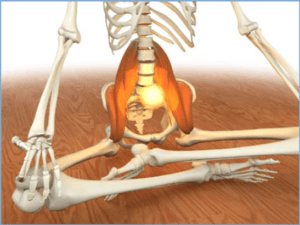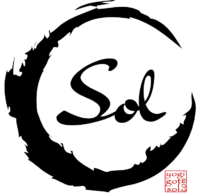
“Scientific Keys Volume I: The Key Muscles of Hatha Yoga”
Ray Long MD FRCSC, with Illustrator Chris Macivor
In recent years, scientific studies have ushered us into a new era of medical science related to the relationship between our gut & our brain. Research (like this and this) have demonstrated how over 100 trillion bacteria in your gut respond to exercise & what we eat; and, how quickly your gut communicates with your brain in real time.
Historically, it was believed that the stomach communicated with the brain indirectly — typically through something called neuropeptide signaling (peptides are like proteins but smaller; neurons use neuropeptides to communicate). Now, we’re learning more about the impact on your body’s regulatory functions; such as your metabolism, mood, and immune system.
These focused studies are discovering correlations that enable a two-pronged (gut-brain) fight against diseases like diabetes, high blood pressure, and arthritis. Our bodies are truly miraculous! This is in an amazing time to be alive & aware.
If you’re reading this, then you probably won’t be surprised to hear the research is also proving how much exercise can improve the balance between your brain and your gut. In case you missed it, you can hear testimonials of the benefits, straight from our Sol Members (on our [y]oga page).
Knowing this, and building on the connections in our physical anatomy and physiology, discussed in Part 1 on Psoas, the question shifts to, “What do you want to do about it?”
Are we – collectively – willing to accept what ancient texts described, coupled with what Western science has recently re-discovered? Concepts like the 2nd Chakra too hippidie-dippidie? What about the belief that a Holy Spirit lives within every Christian and groans on our behalf? Too outlandish to be taken literally?
What happens between the head & gut as you read or hear about issues like race, religion, politics, or relationships? If you’re a parent, do you cringe when a stranger offers unsolicited advice about how to raise your kids? If you’re in the workforce, how do you feel when you have to make a key presentation or recommendation to your boss’ bosses?
It’s no surprise that these issues can create stress, as our minds wrestle with the proliferation of uncertainty. One truly remarkable aspect of the recent scientific discoveries is how fast these triggers can impact the interconnected relationship between our digestive, neurological, musculoskeletal, and cardiovascular systems. It comes down to micro-seconds.
Faster than the neurons in our prefrontal cortex can perceive the world around us, and seconds before the parts of the cerebrum can find the words to express what and how we perceive the world; the gut and brain have already taken action.
The orchestration of this action-reaction is constantly in motion – whether we’re consciously aware, or not. Herein lies the significant benefits of a mindful (NOT just a cardio-fitness workout) yoga practice. A deliberate practice of yoga can increase our mindfulness; beginning with bringing awareness to the inhale, and awareness of the exhale. Our Hatha practice couples an awareness of breath with a mindful precision in our footsteps, through a series of intentional postures.
Heightening our awareness of the actions-reactions in the present moment – while we’re on our mats – is just a practice to open our awareness of our lives off the mat. It’s not a mystical thing; although it may seem mysterious. The mystery may come with an appreciation of the millions of these relationships, or split-moment communication between the head & gut that occur every day.
This is so complex, and arguably so important, that one bio-tech startup markets an in-home test to help you become more aware. For $149, they will analyze the bacteria in your gut, then connect you with their app in order to provide daily tips that they have designed to help with weight loss, sleep, mental acuity, digestion, skin, and more! Check out viome.com, and you can scroll to the bottom of their webpage to order their e-brochure to get more info.
DISCLAIMER: We’re in NO WAY AFFILIATED with Viome, and we haven’t tried their product. It’s only listed here to highlight the growing awareness & significance of our brain’s relationship with our gut.
What we’re discovering is that the complex inner workings of our physical, mental, and emotional sense of self can be vulnerable to the food we eat (or don’t), and the exercises we do (or don’t). At Sol, our yoga practice is consciously and deliberately designed with these realities in mind. The choices to be aware, or to bring more mindfulness to your daily habits & your own autonomic nervous system are completely up to you.
Each time you bring awareness to your breath, you are moving closer to the mindfulness. As you begin a yoga practice, you might begin to realize sensations that you didn’t pay attention to before. This can be a little alarming; even if you’re already woke and not dwelling among the troglodytes in Plato’s Cave. The more you practice, the more conscious awareness you’ll be able to develop to the point you might begin to realize the foods you eat or the exercise routine that used to feel so good, those might actually be doing long-term damage to your nervous system.
If you’re interested in more on this, and many other topics, continue to follow our posts. Plus, stay tuned to our studio schedule for a foundations workshop we’ll be offering this Fall!
